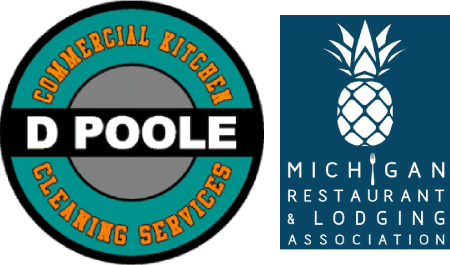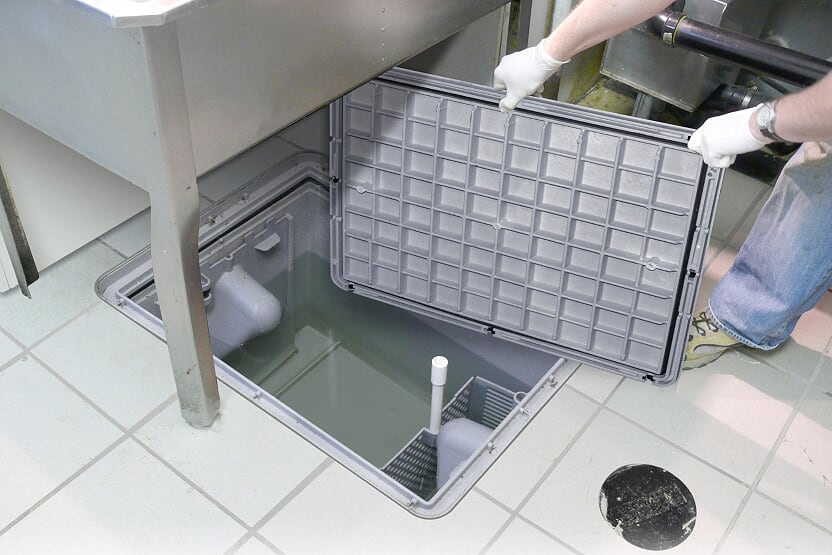When it comes to running a restaurant or food business in Michigan, most owners know that keeping the kitchen clean is non-negotiable. But there’s one job that often gets pushed down the list – grease trap cleaning. If you miss it, you could end up with clogged pipes, nasty odors, and even violations that put your entire business at risk.
If you want to stay in business, avoid fines, and keep customers happy, understanding grease trap cleaning Michigan requirements isn’t just a box to check. It’s a vital part of commercial kitchen compliance and daily trap maintenance. Here’s exactly what you need to know.
What Is a Grease Trap and Why Does Michigan Regulate It?
A grease trap is a plumbing device that captures fats, oils, and grease (often called FOG) before they reach the city’s sewer system. In a busy kitchen, FOG can build up fast, clogging pipes and causing backups. This is why Michigan, like many states, has strict rules for grease trap installation, cleaning, and recordkeeping.
If you’re running a commercial kitchen, it’s your responsibility to make sure your grease trap is working, and that it gets cleaned and maintained on schedule.
Michigan’s Grease Trap Cleaning Regulations: What You Need to Know
If you run a food business in Michigan, there are clear rules for grease trap cleaning and maintenance. Michigan health and environmental agencies require all commercial food facilities to:
- Approved Grease Trap Installation: If you prepare, cook, or clean dishes with fat or grease, you must have an approved grease trap or interceptor.
- Regular Grease Trap Cleaning: Most Michigan cities require cleaning at least every 30 days, but your frequency might be higher depending on usage.
- Record Keeping: Maintain cleaning and maintenance records for at least three years. Inspectors will ask for them.
- Proper Grease Disposal: Grease must never go down the drain. Use approved disposal methods and licensed haulers.
Failure to follow these rules can result in hefty fines, forced closures, or even legal action from the city or state.
The 25% Rule: When Should You Clean Your Grease Trap?
Michigan generally follows the “25% Rule.” This means your grease trap should be cleaned before the combined depth of grease and solids reaches 25% of the total liquid depth in the trap. If you wait too long, you risk blockages, bad smells, and even wastewater backing up into your kitchen.
Regular trap maintenance not only keeps you in compliance but also prevents surprise plumbing disasters during your busiest hours.
Five Ways to Stay Compliant with Grease Trap Cleaning Michigan Regulations
Not sure where to start? Here are practical steps every Michigan commercial kitchen should follow for smooth compliance and peace of mind:
- Stick to a Cleaning Schedule
Don’t wait for a problem. Set a reminder for regular service, usually every 30 days, or more often for high-volume kitchens. Consistency is key. - Work with Certified Professionals
Choose a provider that specializes in grease trap cleaning Michigan and understands all local codes. Ask for a detailed report after each service so you always have proof for inspectors. - Keep Organized Records
Store all cleaning logs and maintenance receipts in an easy-to-find place, either on paper or digitally. If you get an inspection, you can show you’re on top of compliance. - Train Your Kitchen Staff
Explain to your team that grease, oil, and food scraps should never go down the drain. Good habits make your trap maintenance more effective and help prevent problems. - Monitor Between Cleanings
Check your grease trap for buildup, odors, or slow drainage. If anything seems off, call your provider right away instead of waiting for the next scheduled cleaning.
Why Commercial Kitchen Compliance Matters in Michigan
Staying compliant with grease trap cleaning regulations in Michigan protects much more than just your business. Here’s why it truly matters:
- Prevents Costly Plumbing Disasters: Regular, professional grease trap cleaning Michigan helps keep your drains and pipes clear, so you avoid backups, overflows, and expensive emergency repairs that can close your kitchen unexpectedly.
- Protects Your Revenue: Plumbing issues or compliance violations often mean lost sales, canceled bookings, and unhappy customers. Staying compliant keeps your business running smoothly and your reputation intact.
- Keeps Inspectors—and the Law—on Your Side: City health and environmental inspectors take grease management seriously because the consequences go beyond one restaurant. Meeting regulations reduces your risk of fines, penalties, or forced closures.
- Protects the Local Community: When grease escapes into public sewers, it can cause large-scale blockages, overflows, and environmental damage. Proper trap maintenance keeps your neighborhood’s water and infrastructure safe.
- Demonstrates Your Commitment to Public Health: Following commercial kitchen compliance rules shows you care about safety, hygiene, and doing your part for the community. It builds trust with customers and neighbors alike.
- Supports a Cleaner Environment: Responsible grease disposal helps protect Michigan’s water supply and reduces pollution. Every compliant kitchen makes a difference.
By making compliance a priority, you’re protecting your own operation and doing your part for the environment.
Don’t Let Grease Trap Neglect Shut Down Your Business
If you own or manage a commercial kitchen in Michigan, staying on top of grease trap cleaning is one of the smartest ways to protect your investment. Make professional cleaning and careful recordkeeping a routine part of your operations. The result? Fewer emergencies, lower costs, and a kitchen that always passes inspection.
If you’re ready to take the stress and guesswork out of grease trap cleaning, DPoole Commercial Kitchen Cleaning is here to help. Our team understands Michigan’s regulations inside and out, provides detailed documentation, and ensures your kitchen stays fully compliant year-round. Whether you need answers about local requirements or want to set up a dependable cleaning schedule, DPoole Commercial Kitchen Cleaning makes it easy to stay ahead of problems.
Reach out to DPoole Commercial Kitchen Cleaning today for expert grease trap cleaning in Michigan. With us, you get more than a service, you get a partner who helps you protect your kitchen, your reputation, and your peace of mind.
LSI : commercial kitchen compliance, trap maintenance

